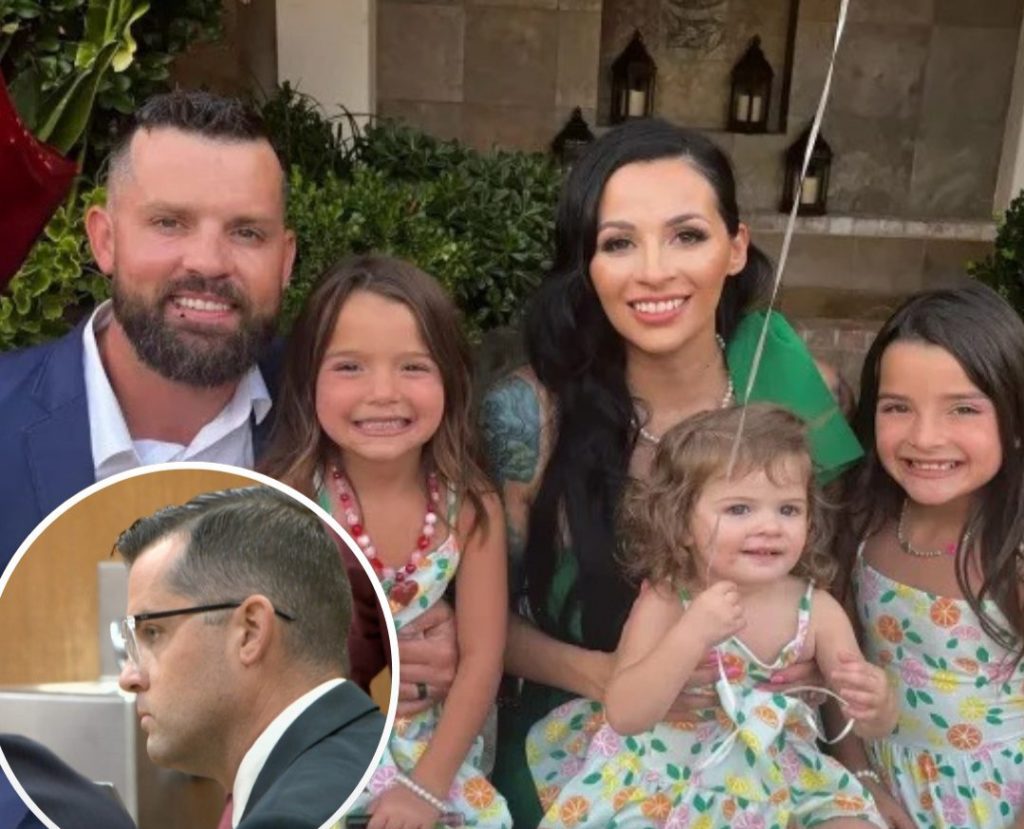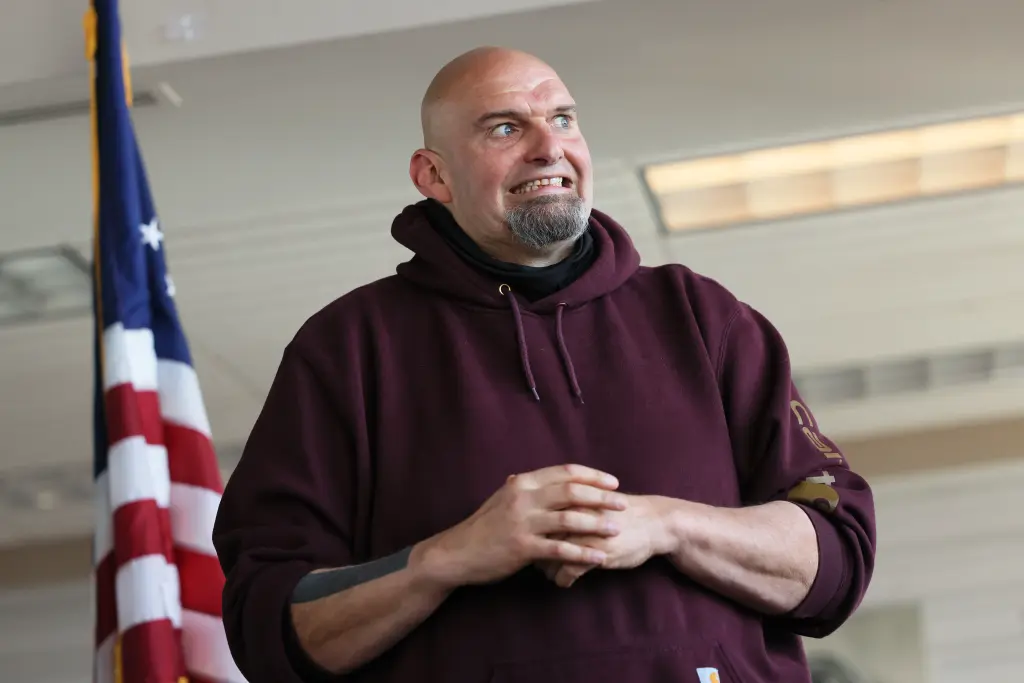Arizona father who left 2-year-old daughter to die in a hot car takes his own life in eerily similar way — just days before facing decades in prison
The Arizona father who left his baby daughter to die inside a scorching car in 2024 has taken his own life in a hauntingly similar fashion — suffocating in a vehicle just days before he was set to be sentenced to decades behind bars.
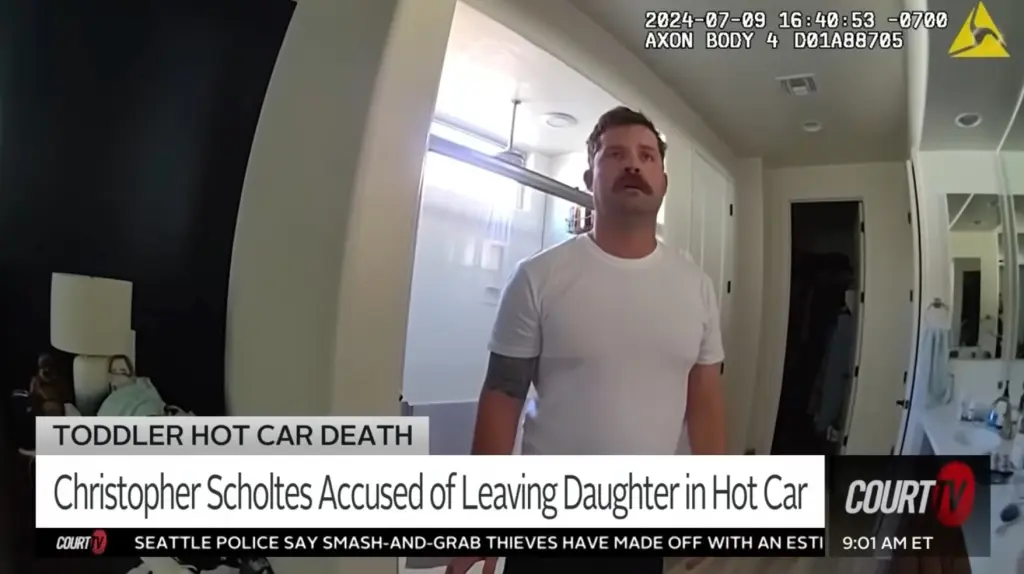
Christopher Scholtes, 38, of Marana, Arizona, was found dead inside a parked car outside his home on November 5, 2025 — less than three weeks before his scheduled sentencing for second-degree murder and child abuse in the death of his 2-year-old daughter, Parker. The Maricopa County Medical Examiner confirmed that Scholtes’ death was an apparent suicide, closing a case that had already horrified the state and left a young family shattered.
Scholtes’ death came one year after Parker’s fatal ordeal on a blazing July day in 2024, when temperatures in southern Arizona exceeded 109 degrees Fahrenheit. According to police reports and court documents, Scholtes had left his toddler strapped in the back seat of a black SUV parked in their driveway for more than three hours. He initially told investigators that he had “accidentally forgotten” she was there, but evidence later revealed a far darker truth — that he had gone inside, cracked open a beer, and spent the afternoon watching pornography and playing video games while his daughter slowly died just a few feet away.
When first responders arrived, Parker was found unresponsive in the back seat, her body temperature far beyond survivable limits. The medical examiner ruled her death as heatstroke caused by hyperthermia, noting the car’s interior had reached more than 130 degrees.
At the time, prosecutors said the tragedy wasn’t an accident — it was criminal negligence. Investigators found that the vehicle’s automatic engine shut-off timer had turned off the air conditioning after 30 minutes, even though Scholtes claimed he’d left it running to keep the car cool. Prosecutors described his actions as “willful, reckless, and depraved.”
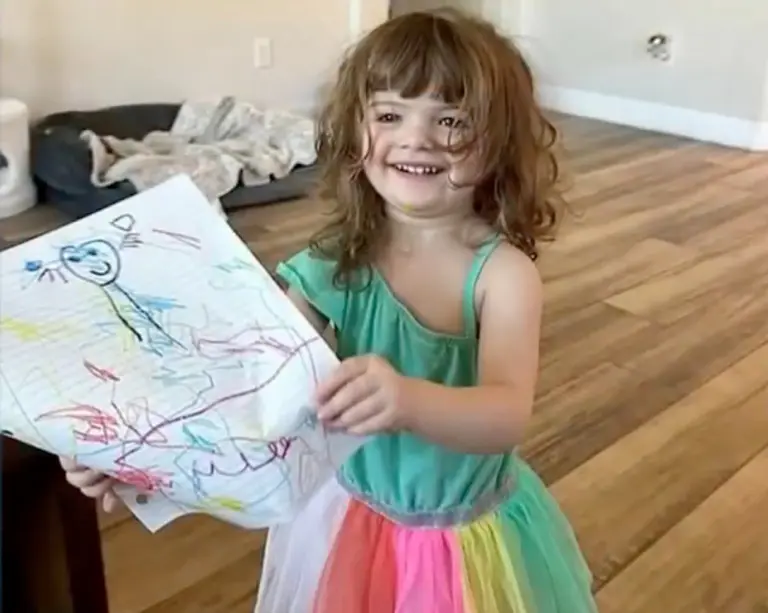
Scholtes was charged with second-degree murder and child abuse and spent more than a year awaiting trial. In October 2025, he accepted a plea agreement, admitting guilt to both charges in exchange for a reduced maximum sentence of 30 years. His sentencing was scheduled for November 21. Instead, on the very morning he was supposed to surrender himself into custody, police discovered him dead inside his own car — a chilling echo of the same conditions in which he’d left his child to die.
Pima County Attorney Laura Conover, whose office prosecuted the case, called the ending “gut-wrenching and surreal.” She wrote on social media, “May the surviving family be surrounded by love and support. This case has tested the limits of compassion and accountability. Justice was supposed to come through the courts — not through this.”
Neighbors told reporters that Scholtes had been seen outside his home the night before, appearing “distraught and distant.” One resident said, “He looked hollow. Nobody could tell what was coming, but you could feel the weight on him.”
For many in the Marana community, Scholtes’ death adds another painful chapter to an already unbearable story. Parker’s death last year had sparked public outrage, protests, and renewed calls for stronger parental accountability laws in Arizona. Many residents attended vigils outside the courthouse holding signs that read “Justice for Parker” and “Never Leave a Child Behind.”
Friends of the family described Parker as a “sweet, funny, and bright little girl” who adored animals and loved playing outside. Her mother, whose name has not been publicly released, discovered her daughter’s body when she returned home from work that afternoon. According to messages submitted as evidence in court, she had repeatedly warned Scholtes not to leave their children in the car, texting him, “How many times have I told you this is dangerous?”
Those texts later became key evidence during plea negotiations, revealing a pattern of neglect and disregard for basic safety. In interviews with investigators, Scholtes’ older daughters also disclosed that their father had left them alone in the car on prior occasions. Prosecutors said this demonstrated that Parker’s death was not an isolated lapse in judgment — it was the culmination of repeated, reckless behavior.
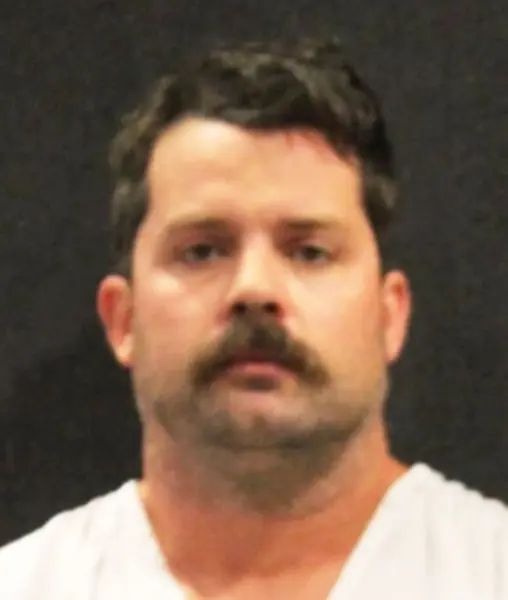
In court filings, prosecutors described Scholtes as a “chronically irresponsible parent whose indifference to the safety of his children resulted in unimaginable suffering.” When he entered his guilty plea, witnesses said he appeared subdued and tearful, answering the judge’s questions quietly and declining to make a statement.
His death, however, means he will never face the full consequences of his actions. Legal analysts note that while the case is technically closed, Scholtes’ suicide leaves lingering questions — both about accountability and about how a family already traumatized by one horrific loss can begin to process another.
Experts say that suicides among defendants facing severe sentences are not uncommon, but the nature of Scholtes’ death struck a particularly haunting chord. Reports from the Maricopa County Sheriff’s Office suggest that he died in his vehicle parked outside his home, with no evidence of foul play. Authorities have not disclosed the exact method, citing the family’s privacy.
Community members have struggled to find meaning in the case. “It’s tragic all around,” one family friend said. “A little girl lost her life, a mother lost her child, and now the other kids have lost their father too. There’s no justice in any of this — just pain.”
The Pima County Attorney’s Office released a statement following Scholtes’ death, emphasizing that the justice process had been designed to give the family closure through the courts. “We understand that this outcome denies the survivors their day in court,” the statement read. “Our thoughts remain with Parker’s mother and siblings.”
Child safety experts say the case underscores the persistent dangers of leaving children unattended in vehicles, even for a short time. According to the nonprofit group Kids and Cars Safety, more than 960 children in the U.S. have died from vehicular heatstroke since 1990. In over half of those cases, parents or caregivers “forgot” the child was inside. The remaining cases, like Parker’s, involve deliberate neglect or misunderstanding of how quickly a vehicle’s temperature can become fatal.
Advocates continue to push for the “Hot Cars Act,” a proposed federal law that would require automakers to install rear-seat alert systems designed to remind drivers of passengers in the back. The bill has stalled in Congress multiple times, though Parker’s case has reignited conversations around its necessity.
Meanwhile, Parker’s surviving siblings — ages six and nine — are receiving counseling and family support services. Local organizations have set up a private fund to assist the family with long-term care, noting that the trauma from such an event can last a lifetime. “These children will grow up with unimaginable questions,” said a social worker familiar with the case. “They’ve lost both parents — one to death, one to accountability — and they’ll spend years trying to make sense of it.”
For many, the detail that Scholtes ended his life in the same manner that he caused his daughter’s death feels like a grim act of symbolism. Whether it was guilt, fear, or a final attempt to mirror the pain he inflicted, no one will ever know for certain. What remains is a family broken, a community shaken, and a small child remembered for the life she never got to live.
As one mourner wrote on a memorial page for Parker: “You deserved better, little one. You deserved a world that kept you safe.”
